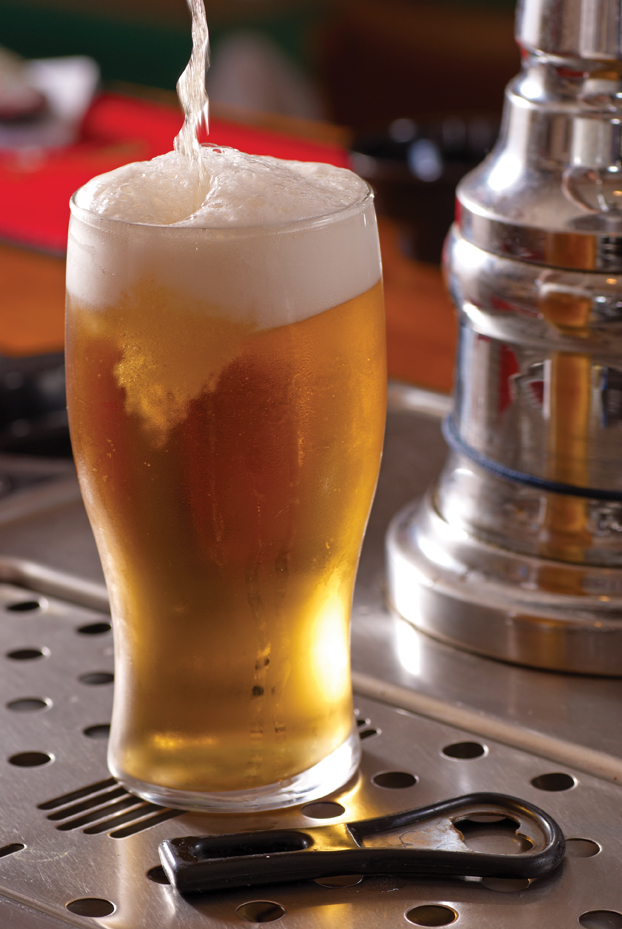Household Bills
Pushy pub prices punishing peak-time punters – UK’s largest chain charging extra in busy periods

The UK’s biggest pub company, The Stonegate Group, has started charging customers more in some of its sites during peak hours.
The chain is calling the change in price “dynamic pricing” which has seen prices rise when venues are busier and require more staff.
It comes as many pubs are struggling financially with rising bills and sustained high inflation over the last year.
There are around 4,500 pubs, bars and clubs in the group, which was started in 2010, including the Yates, Be at One, and Slug and Lettuce brands.
It’s not the first time the chain has changed its prices during peak hours, after increasing them during previous World Cup football tournaments.
The group has put signs in some of its pubs to tell customers why prices are now more expensive during peak hours.
These signs read: “Dynamic price is currently live in this venue during peak trading season. Any increase in our price today is to cover these additional requirements: To ensure we have enough staff so you’re served quickly, additional door staff for your safety, satisfying and complying with licensing requirements, extra cleaning routines and use of polycarbonate glasses. Thank you for your cooperation”.
12% fall in licensed venues
The UK hospitality industry was hit particularly hard during the coronavirus pandemic when many venues were shut.
Since March 2020, there has been a 12% fall in the number of licensed premises in the UK, according to the Hospitality Market Monitor from the consultancy firm CGA and AlixPartners. In the last year, 5,736 pubs, restaurants, bars and cafes have closed.
When looking at pubs specifically, between January and March this year, 153 closed down, a 60% increase when compared to 2022, according to Government data.
Rising costs have also taken their toll on the industry. Last week, the British Beer and Pub Association (BBPA) warned that energy costs were still a serious threat to many UK pubs.
It said 15% of pubs were at risk of failing in the next year and 95% of those said energy costs were a significant contributor to possible failure.
Costs were also increased for brewers and pubs in the UK last month after beer duty was increased by 10.1% on bottles and cans of beer. This will add an extra £225m per year to the industry, according to the BBPA.
Tom Stainer, chief executive, Campaign for Real Ale (CAMRA) felt that ‘dynamic’ pricing could be ‘counterproductive’, especially during a cost-of-living crisis.
He said: “This is a make-or-break time for the beer and pub industry. Many pubs are fighting to survive and have had no choice but to increase prices in response to a cost-of-business crisis, customers tightening their belts, sky high energy prices and unfair business rates.
“But introducing dynamic pricing risks being counterproductive and confusing, turning some customers away instead of encouraging people to support their locals during this difficult time.
“Many pubs already struggle to display prominent price lists for customers, which are more important than ever for people who may be struggling to afford a pint with friends and family. With staff already having demanding jobs, it is hard to see how price changes at different times can be clearly communicated to pubgoers through clear and prominent price lists.”
“Pricing may marginally increase”
A spokesperson for Stonegate said: “Stonegate Group, like all retail businesses, regularly review pricing to manage costs but also to ensure we offer great value for money to our guests. Across the managed business our dynamic pricing encompasses the ability to offer guests a range of promotions including happy hours, 2-for-1 cocktails, and discounts on food and drink products at different times on different days throughout the week.
“This flexibility may mean that on occasions pricing may marginally increase in selective pubs and bars due to the increased cost demands on the business with additional staffing or licensing requirements such as additional door team members.”
The group did not confirm how many venues would be affected by the permanent pricing change but did say that peak pricing varied across the businesses and did not apply to a set day or time.
UKHospitality chief executive, Kate Nicholls, said: “Pricing strategies are a matter for individual companies but surge pricing as a concept is not new to the sector. It is sometimes put into effect by companies when dealing with particularly busy events, such as a World Cup, where the influx of customers requires additional staff and security, for example. Small increases in prices help companies offset those costs.
“There are requirements around display of drinks prices for licensed premises to protect customers, which venues must remain compliant with.”